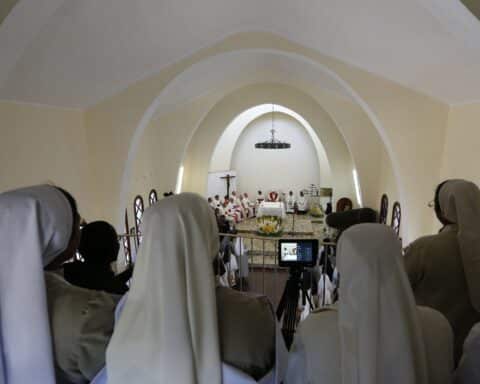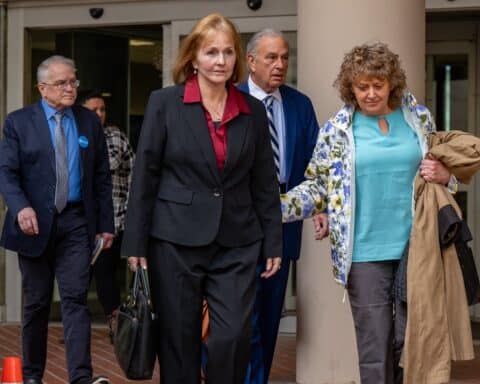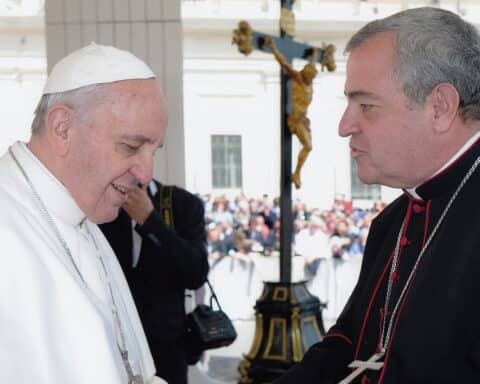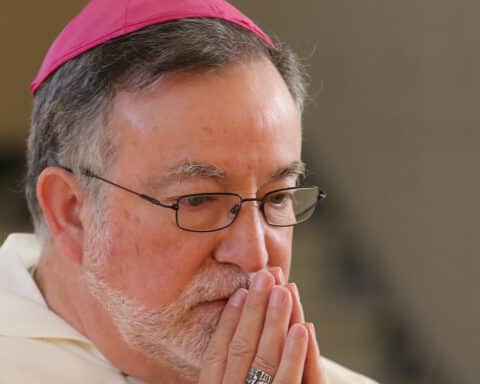As the U.S. Conference of Catholic Bishops met in Baltimore from June 11-14 for its annual spring general assembly, many Catholics anticipated what they hoped would be progress on addressing the continuing saga of the Church’s sexual abuse crisis. While the bishops released three documents addressing different areas of concern related to the crisis, other outlets took the meeting as an opportunity to release information to garner attention that may or may not have shed light on certain points of interest.
For example, Pew Research Center, in a report released on June 11 about a survey it conducted in late March, found that a quarter of Catholics have reduced both their frequency of Mass attendance and financial support of their parish because of their concerns about the sex abuse crisis. That same survey found that 69%of Catholics believe the sex abuse crisis is an ongoing one (79% of all surveyed, regardless of religious affiliation, believe that to be true). It’s not a very big leap to believe those numbers are related. It’s probably even a safe assumption that those who are decreasing their Mass attendance also are being asked by friends and/or family, perhaps regularly, “Why do you keep going to Mass?”
Now, to be fair, the crisis is ongoing in the sense that the hierarchy is dealing with massive fallout from more revelations of sexual abuse in the past and a variety of issues that make it clear that their own house is not in order — see, for example, disclosures that indicate cover-up of information in certain dioceses and the exposure of former cardinal Theodore McCarrick’s proclivities. Asking for forgiveness, seeking to create structures that protect children and adults from sexual abuse by Church personnel, and seeking to make reparations in the appropriate form must continue.
Nevertheless, the present focus on these issues, as important as they are, can lead to a myopia that misses much of the progress that has been made since the Charter for the Protection of Children and Young People was adopted in Dallas in 2002. An example from a large archdiocese — that of New York — is an illustration. The archdiocese in April released a list of 120 priests in its jurisdiction who had been credibly accused of sexual abuse. Of that number, only two cases have occurred since 2002. And none involved priests who had been ordained since 2002.
On the national level, the National Review Board, created with the advent of the Dallas charter, continues to make annual reports for greater transparency. This year’s report, as well as past reports, can be found at the USCCB website. The 2018 report, which includes information on cases made known between July 1, 2017, and June 30, 2018, of child sexual abuse by clergy, totaled 1,455 allegations. While that number is disturbing, a deeper look indicates that the vast majority occurred before 1985. Only 20 cases of alleged offenses since 2005 were reported in the 2018 report, a clear sign that structural changes are improving safety.
Discussing the data around clergy sex abuse can be tough for Catholics in the pews. No one wants to sound like he or she is rationalizing away the damage done to individuals and to the Body of Christ, and many of the faithful will continue to be challenged by friends and family on why they keep going to Mass. All want the issue to be resolved forevermore, but fallen mankind will always sin and must call on the Savior to help right our wrongs. Let’s pray that we take the right steps on that path to redemption.
OSV Editorial Board: Gretchen R. Crowe, Scott P. Richert, Scott Warden, York Young





